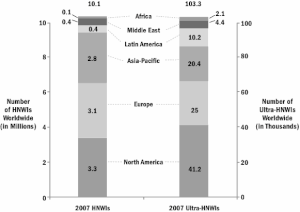April 20, 2011
by David M. Williams
 |
| Job Act (Photo credit: Sasha Y. Kimel) |
For the Small Business
A small business must consider under what form of entity it wants to operate. Taxation, liquidity, control, and liability are all affected by a company’s form. Very small companies, the “Mom-and-Pop” shops, usually start as sole proprietorships. This form is the simplest to operate—the owner/operator and the operating entity are considered one and the same.
At the other end of the spectrum is a C Corporation. A C Corporation is generally considered a separate entity from any of its owners. Fractional ownership, “shares”, can be held by multiple individuals or entities and they can be conveyed for value (bought and sold) without disturbing the entity’s existence. It has its own income tax and tax rate table, which can exceed the marginal tax rates of any shareholders.
| SEC (Photo credit: Wikipedia) |
The JOBS Act permits a company to sell public shares under certain circumstances without filing with the SEC. It can advertise the sale of shares, and it can sell shares to individuals who make less than $200,000 annually or have less than $1 million in assets excluding home and personal assets (an accredited investor). The Company is exempt from meeting Sarbanes-Oxley requirements for 5 years or until its revenue reaches $1 billion.
The provision of crowdfunding, a capital-raising strategy in which investors buy stakes in closely held companies over the Internet, appears to be a good thing at first blush. However, first off, each shareholder is limited to investing $10,000 (or 10% of income if lesser). The most a Company can raise is $1 million ($2 million if they file with the SEC) by means of crowdfunding. That means that raising $1 million would add 100 owners to the business.
While the language of the JOBS Act is not clear on the matter, it appears that any subsequent equity raise would require filing with the SEC and meet all of the reporting requirements, since the company is now a Public Company.
 |
| Michael Oxley , U.S. Senator from Maryland. (Photo credit: Wikipedia) |
Additionally, the business would not get the benefit of investment banking professionals as the business owners try to raise capital on their own. The potential for issues is great, which could make the JOBS Act a very expensive way to raise capital.
For the Investor
| Number of the High Net Worth Individuals (HNWIs) hold at least US$1 million in financial assets, excluding collectibles, consumables, consumer durables and primary residences. Utra-High Net Worth Individuals (Ultra-HNWIs) hold at least US$30 million. (Photo credit: Wikipedia) |
The provisions of the JOBS Act offer small investors the chance to invest into opportunities that were only available to High Net Worth individuals and institutions. It also lets them to direct their investment dollars into their own geographic area.
There are many drawbacks to the opportunities made available. First off, a small investor would be investing in a very risky enterprise. An institutional investor knows that some of their portfolio companies will fold up. A few others will be “walking wounded,” able to continue operating but not profitable enough to return capital to the institutional investor. They count on one out of seven portfolios to provide them with a risk adjusted return. Unless a small investor can invest in 7 or 8 small companies, the odds are that their investment will either fail or be “walking wounded.”
Although the JOBS Act gives the investor public stock, there is no market for it. The investor can’t trade it on any stock market. They can only hold the stock until the company buys them out or it goes bust.
Sarbanes-Oxley was put into place because of accounting abuses epitomized by Enron. These small companies won’t have to have the degree of auditing that Sarbanes-Oxley requires. Therefore, the small company could fail by accident or imprudent management that wouldn’t be caught. This does not even consider unethical individuals who form false companies to collect capital, and then disappear.
The small investor would have no control. Most likely, the 100 shares (from crowdfunding) would represent no more than 49% of the company. The small investor would therefore own 0.49% of the company. They would have no say in company governance, short of suing the company.
The JOBS Act removes many of the safeguards that have been put in place to protect the small investor. These safeguards were enacted because of the risk of abuse or loss. Small investors need these protections more than ever. It would appear, then, that the JOBS Act opens risks and problems for both the offering company and the small investor.








No comments:
Post a Comment